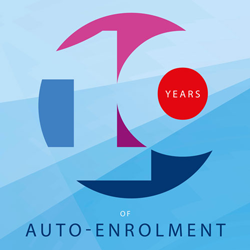The decade since the auto-enrolment pensions regime began its national rollout has seen responsible investment (RI), or ESG investing, become a top focus area for UK pension schemes.
Is this a coincidence? At one level, yes. After all, the architects of AE were silent on the matter of responsible investment. Nevertheless, by designing a regime that would enrol into pension schemes millions of young workers, women and lower paid employees for the first time, the ground was laid for RI to blossom. Repeatedly, surveys of UK investor opinion find that commitment to RI is strongest among those groups in the UK population who first began saving for a pension thanks to AE.
The same legislation saw the establishment of Nest and an opportunity for organisations such as ShareAction to feed into the public consultation on its design. As early as 2009, we made the case to the DWP that responsible investment should be central to Nest’s investment strategy alongside a commitment to public accountability on RI and close engagement with scheme members on ESG themes. Today our hopes have been largely fulfilled. Early on, Nest’s board and senior executives committed to hiring dedicated RI professionals. Nest is a highly visible leader on RI issues and a robust steward of investee companies’ ESG performance, often working collaboratively with other like-minded investors in the UK and overseas. It has set a standard, not least in its public reporting on RI, that other AE providers and large UK schemes have effectively felt compelled to compete with. Nest is by no means always top dog on all dimensions of RI performance, but the healthy competition generated has been positive for savers. This has helped to catalyse significant ESG ambition across the wider pensions landscape.
In the decade ahead I see two interlinked priorities for pensions. First is around the G in ESG. Pensions governance in the AE era is less democratic and less close to its membership than it could and should be. Despite bringing millions into pension saving, the new regime failed to design member representation into the governance of schemes and neither Nest nor any of the master trusts created since 2012 have scheme members on their boards. This contrasts with older trust-based schemes where at least one third of their trustee directors must be members or their elected representatives, which serves to anchor decisions to members’ needs and perspectives. Nest’s 10 million members will include many highly qualified and competent individuals who could make a significant contribution to its board. The same is true for other multi-employer schemes.

